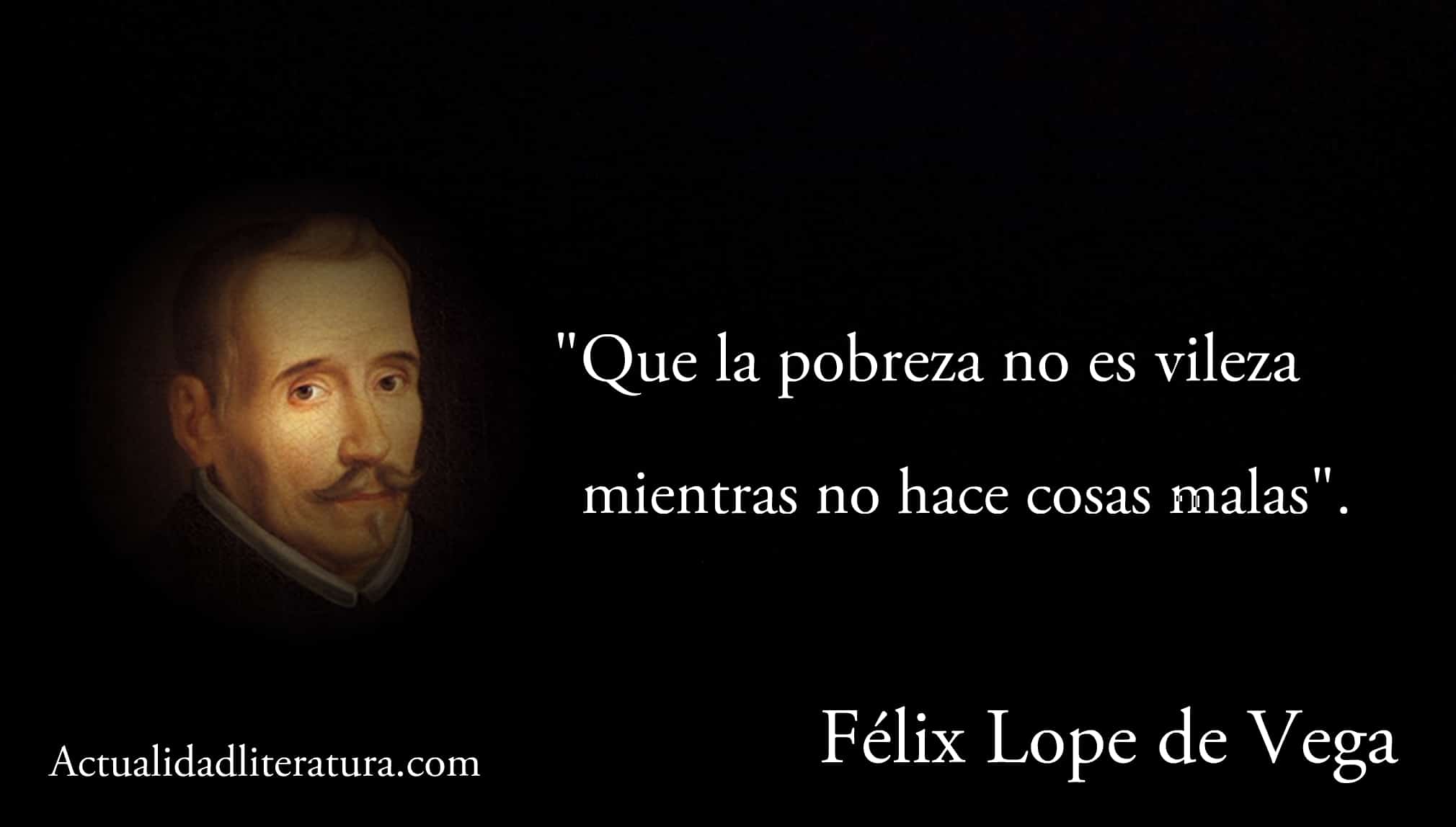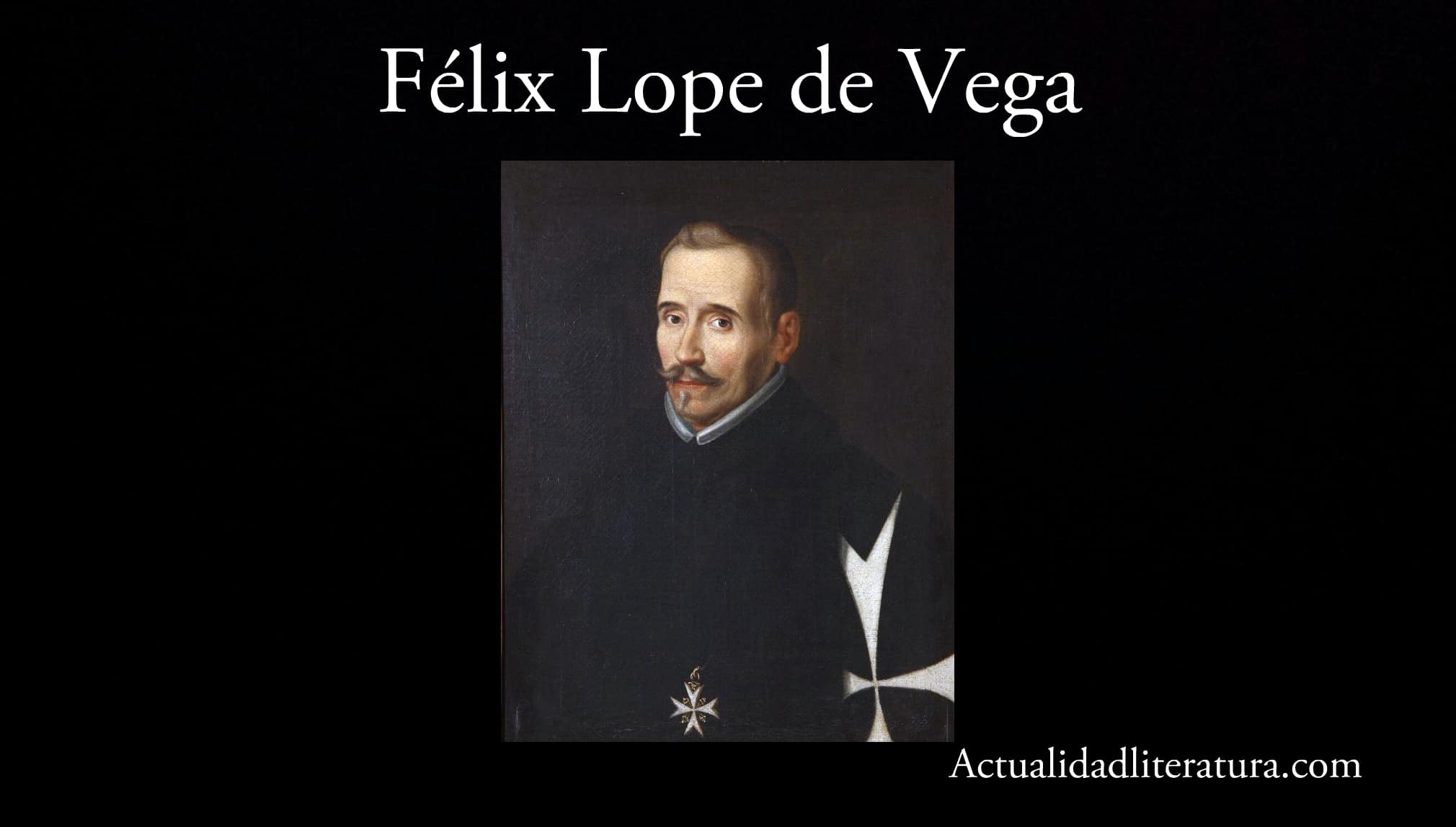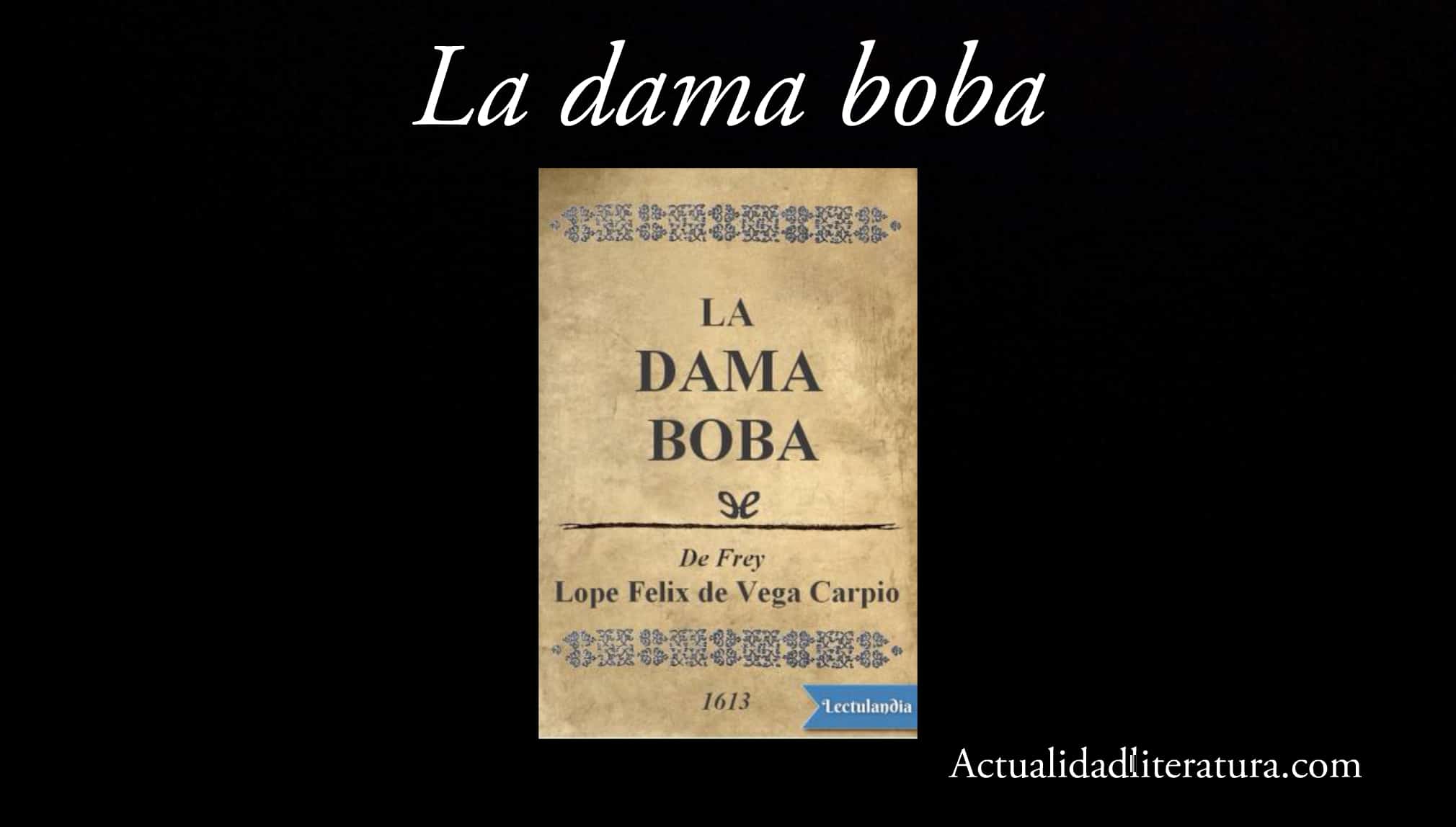
Phrase by Félix Lope de Vega.
La dama boba It is one of the top pieces of the theater developed during the Spanish Golden Age. This work created by Lope de Vega was finished writing on April 28, 1613 (according to the original manuscript). Shortly after, it premiered on the stage on October 14 of that same year, under the direction of Pedro de Valdés' company.
Like many of the pieces that achieve immortality, it is a text ahead of its time. In its plot, unimaginable questions are posed within post-Renaissance Spanish society. Among these, the most relevant is what is the role of women in society.
The author, Lope de Vega
He was born in Madrid on November 25, 1562. He is one of the most prolific authors in world literature. He is credited with three "long" and four short novels, nine epics, three didactic poems, some 3000 sonnets and hundreds of theatrical comedies. According to the Spanish poet and playwright Juan Pérez Montalbán, the total number of pieces written by Lope de Vega around 1800.
Together with Tirso de Molina and Calderón de la Barca, he represents the zenith of Baroque theater in Spain. His personality never went unnoticed, he forged great friendships with figures of the stature of Francisco de Quevedo and Juan Luis Alarcón. Likewise, he was a "rival" of Miguel de Cervantes, (the author of Don Quixote called him a "monster of nature") and had a famous enmity with Luis de Góngora.
El phoenix de that wits
The influence of the Madrid poet and playwright within Spanish society was such that he even received the “honor” of being the protagonist of a blasphemous creed. "I believe in almighty Lope de Vega, poet of heaven and earth" ... Of course, the inquisition - in full "splendor" during that time - could not stand idly by. Accordingly, the ode was banned in 1647.
The specialists in his work affirm that the author took part in his theatrical pieces. He did so under the pseudonym Berlardo, a recurring character in his pieces and within the fiction of other authors. In this sense, the piece stands out The phoenix of the wits written in 1853 by Tomás Rodríguez Rubí. He has even had a presence in the cinema with the celebrated film by A. Waddington, Lope (2010)
A life full of tangles
His life was full of multiple love affairs. Many of whom earned him a reputation for being absent-minded to the detriment of his studies or his responsibilities at Court. Inclusive, he was exiled from the Kingdom of Castile for writing a series of libels against one of his lovers, who had abandoned him to consummate a marriage based on economic interests.

Felix Lope de Vega.
The manuscript of La dama boba he also found himself in the middle of these entanglements. Although not all historians agree with this hypothesis, it is claimed that the original text was a gift from the playwright to his lover, the actress Jerónima de Burgos, wife of the theater director Pedro de Valdés.
La dama boba... or the educational power of love
Lope de Vega developed an argument around two protagonists, the sisters Nise and Finea. They decide to confront the prevailing machismo within Iberian society, each following different strategies. In the end, they both fall in surrender to the power of love. On the one hand, Phinea appeals to her intelligence and relies heavily on her intellectual "supremacy."
To face her dislike of the disadvantage of being a woman, Finea is dedicated to writing in an almost compulsive way. On the other hand, nise equally appeals to intelligence, but pretending to be foolish and naive (Apparently it is carried away by the designs of third parties). Yet deep down his behavior is part of a meticulous plan to get away with it.

The silly lady.
You can buy the book here: La dama boba
The cathartic power of jealousy?
At this point the authenticity of Lope de Vega with respect to other intellectuals of his time is demonstrated. Well, it introduces jealousy as a neuralgic element within the plot. Very contrary to most of the pieces of this style written in the early seventeenth century. Because usually entanglements just eluded love and romance.
Through jealousy, the Madrid-born author explores the darkest feelings of his characters. Then, it breaks with the stereotypes of the silly and anodyne women, or the resentful ones condemned to a disgraceful singleness. On the other hand, Nise and Finea present different dimensions, they are human, not mere caricatures in search of an ephemeral smile from the audience.
Naivety is rewarded
Part of the conflicts between the sisters protagonists of La dama boba they focus on the gifts displayed by one and the other. While Nise's — inherited from her father, the nobleman Octavio — is quite modest, Finea's is impressive. The contrast is that the former is extremely intelligent, a (theoretically) dazzling trait for any suitor.
Unlike the second, naive, in need of extra help in her quest to get an honest man. Or at least this was the thought of one of his uncles to grant him this kind of "special compensation." Therefore, the money received thanks to "your naivety" is quite attractive.
Role exchange
Conflict and entanglement appear when their respective suitors fall in love with their girlfriends' sisters. In the first instance, Phiseus, a wealthy gentleman whose relationship with Finea was agreed upon by her father, but without previously knowing the lady in question.
Then Laurencio appears —another gentleman (poor), who fell in love with Nisa thanks to his poetry— who decides to conquer his sister-in-law, enraptured by money. It is there when the "sleeping" intelligence of "the fool" comes to the fore, surprising locals and strangers, least of his sister. To further complicate matters, the knights agree to an exchange that would allow them to see their wishes fulfilled.
A work that is still valid
Beyond its undoubted historical value, Lope de Vega in general and La dama boba in particular, they remain in force several centuries later. The play celebrates his critical position - amid laughter - on machismo. Which represents a true daring within a conservative society whose insistent maxim was to place God at the center of everything.